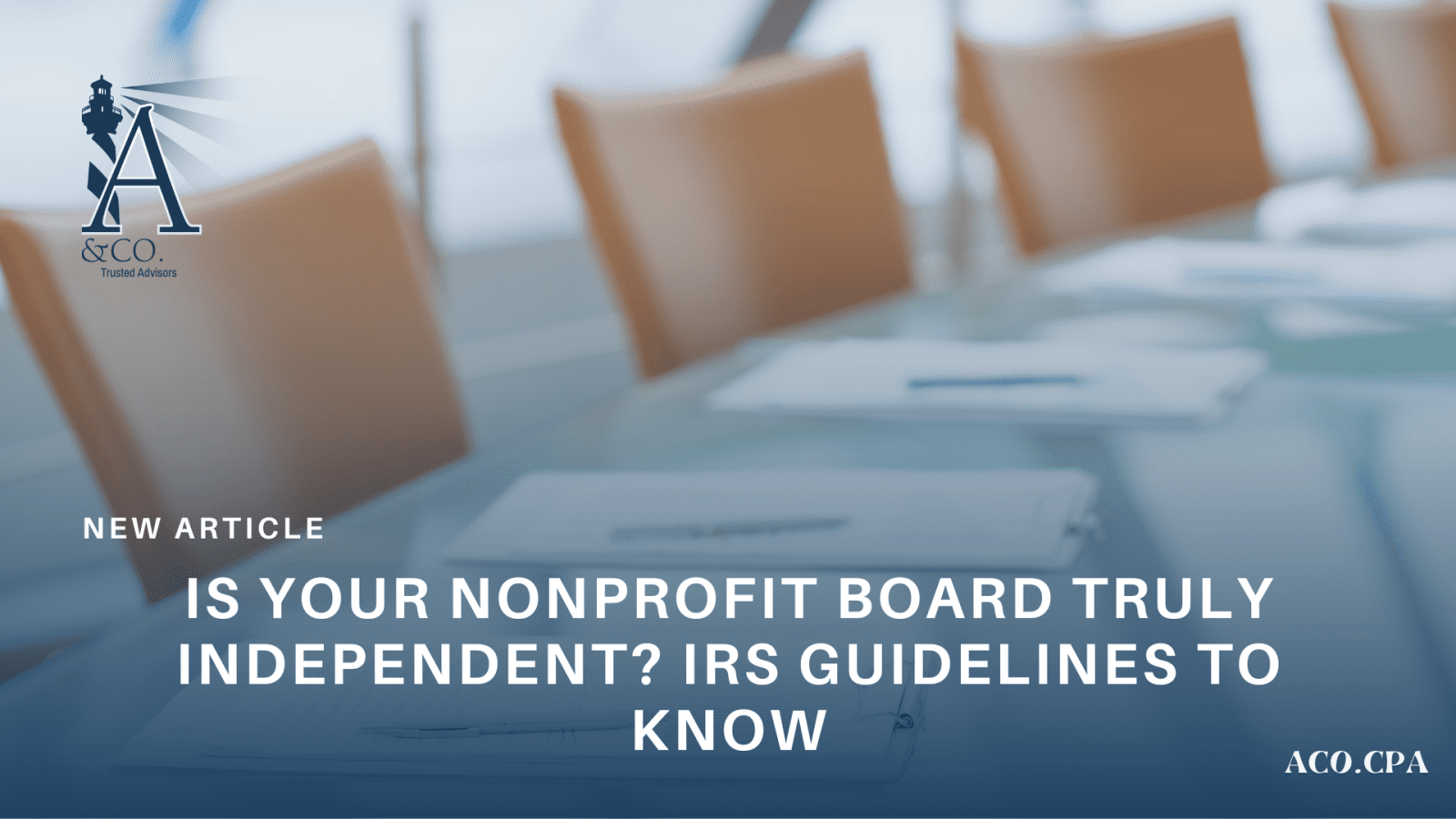Are the members of your not-for-profit’s board truly independent? You might instinctively say “yes,” but ensuring director independence goes beyond simply avoiding conflicts of interest. The IRS has a specific four-part definition of independence, and if a majority of your board members don’t meet these criteria, your organization’s governance could be questioned by the IRS, donors, and other stakeholders.
IRS Independence Criteria
The IRS outlines four key criteria that define board member independence for 501(c)(3) organizations. To be classified as independent, your directors must not:
- Be compensated as officers or employees of your organization or any related organization.
- Receive more than $10,000 in compensation for work as independent contractors from your organization or related organizations during the tax year (with the exception of reasonable compensation for board service).
- Have direct or close family member involvement in any transaction with your organization that provides a material financial benefit, which must be reported on Form 990, Schedule L, “Transactions with Interested Persons.”
- Be involved, or have family members involved, in transactions with a taxable or tax-exempt related organization that must be reported on Schedule L.
Additionally, your organization must disclose on Form 990 if any of your officers, directors, trustees, or key employees had family or business relationships with each other during the tax year.
Collecting the Necessary Information
To comply with the IRS’s disclosure requirements, your organization must make a “reasonable effort” to gather the necessary information. This often involves distributing annual questionnaires to your officers, directors, trustees, and key employees to identify potential family or business relationships.
It’s worth noting that board members may still be considered independent even if they receive financial benefits as part of the group your organization serves. A religious exception also exists for board members who’ve taken a vow of poverty and belong to a religious order that receives financial support from your organization — as long as these payments don’t count as taxable income to the individual.
What About Non-independent Members?
Not every board member needs to be independent. For example, you may have an employee or someone who has loaned money to your organization serving on your board.
However, watchdog organizations generally recommend that donors support nonprofits with a majority of independent directors. Some states, such as California, even require that at least half of a charitable board’s members be independent. The IRS also expects at least 51% of board members to have no familial relationships with one another.
Avoiding Conflicts of Interest
To avoid conflicts of interest or even the appearance of them, strive to maintain a board where at least two-thirds of the members are independent. Additionally, ensure all members of your audit and compensation committees are independent, and consider having independent members make up a majority of your governance and nominating committees.
For more information or assistance with ensuring board independence, feel free to contact your experts at Accavallo & Company LLC. We are available by email at [email protected] or call 203 925-9600 today!



